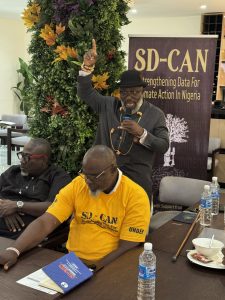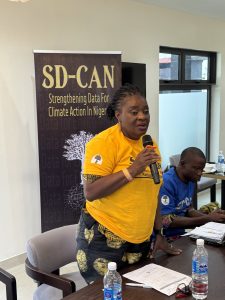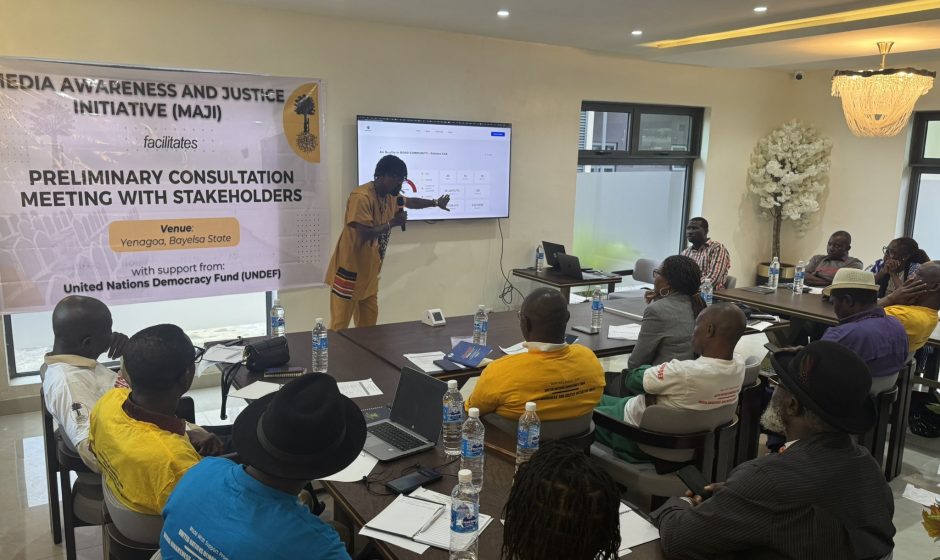The Media Awareness and Justice Initiative (MAJI) on Thursday announced that it has commenced the deployment of 200 air quality monitoring devices to collect empirical data in support of climate action activism aimed at tackling oil pollution and climate change.
Mr. Onyekachi Okoro, Executive Director of MAJI, made this known at a preliminary consultation and interactive meeting with stakeholders on climate action in Nigeria, held in Yenagoa, Bayelsa State.
Okoro explained that MAJI, an environment-focused non-governmental organisation (NGO), has so far deployed 30 air quality monitoring devices across oil-producing communities prone to pollution, as part of a pilot phase. These devices collect and transmit real-time empirical data on air particle measurements from the field.
He stated that the project, tagged Strengthening Data for Climate Action in Nigeria (SD-CAN), is supported by funding from the United Nations Democracy Fund. The initiative will also include training stakeholders on how to use the devices to monitor environmental conditions.
MAJI is collaborating with the National Oil Spill Detection and Response Agency (NOSDRA) and has trained officials at the agency’s Port Harcourt Zonal Office on the use of the air quality monitoring devices, which are also used globally.
Okoro, a renowned filmmaker and environmental crusader, noted that the introduction of technology in environmental data collection, covering variables like air particles, carbon emissions, and toxicity—will help strengthen the case for environmental justice. He said polluters often dismiss environmental concerns as emotional and lacking scientific evidence, allowing them to escape liability due to a lack of credible data.
The event was attended by representatives of the academia, media, oil-producing communities, NGOs, regulatory agencies, and the Bayelsa State Ministry of Environment.
Participants discussed challenges related to data collection, quality, integrity, and access. They recommended increased collaboration among stakeholders to address these issues effectively.
Mrs. Maria Olodi-Osuma, a media professional, urged stakeholders to develop strategies that leverage the competence and experience of trained environmental journalists, rather than relying on unverified information circulated on social media. She argued that perceptions about the limited impact of media in raising climate awareness often stem from a lack of understanding. According to her, media practitioners continue to do their jobs amid difficult conditions, including threats to their safety.
In his contribution, HRH David Osene (Ogbolo XI), Paramount Ruler of Elebele Community in Ogbia Local Government Area, Bayelsa State, lamented the long-standing neglect of environmental hazards faced by oil-producing communities.

He stated that several oil and gas spill incidents have been ignored or covered up, with affected communities often denied compensation and remediation on the grounds that their evidence was not scientific.
Osene commended MAJI’s efforts to build the capacity of communities and stakeholders to jointly advocate for environmental justice. He pledged to mobilise women and youth in his domain to participate in the training phase of the project at the Kolo Creek Oilfields.

Also speaking, Mrs. Grace Orumiefa, Chairperson of the Bayelsa State Chapter of the Nigeria Association of Women Journalists (NAWOJ), urged MAJI to ensure that oil companies operating in the Niger Delta are included in the project.




